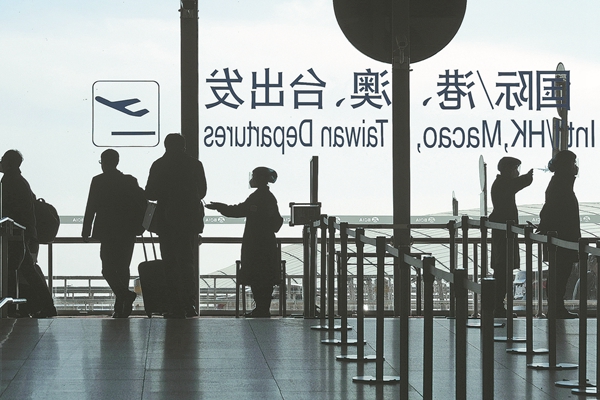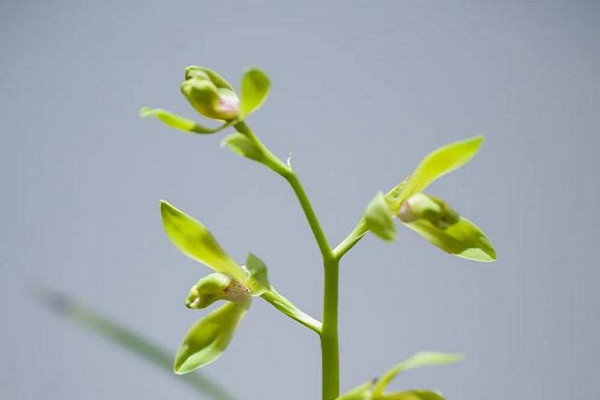
Travelers enter a terminal at Beijing Capital International Airport to take flights on Thursday as some restrictions for travel were eased. CUI JUN/FOR CHINA DAILY
People arriving in China from abroad for work, business, study or family reunions will no longer need to quarantine starting on Jan 8, according to the latest changes in the country's COVID-19 policy. Inbound passengers will still need a negative nucleic acid test 48 hours before departure and have to wear protective masks onboard flights, the State Council's Joint Prevention and Control Mechanism announced on Tuesday.
Testing on arrival will also be scrapped beginning on Jan 8, and passengers will not be subjected to any special restrictions during their stay in China as long as their health declarations are normal and they show no symptoms of the disease during a "routine health check" while clearing customs.
Since March 2020, travelers to the Chinese mainland have been required to quarantine, typically for up to 21 days, at designated hotels. The quarantine policy, which has evolved over time, currently requires five days of quarantine at a centralized facility, followed by three days at home.
The State Council said that restrictions on entry of international flights, such as the "Five-One Policy" — a rule under which a country can send only one flight of one airline via a single route just once per week — will be lifted as well.
According to the announcement, restrictions on outbound travel will be relaxed, while visa arrangements for foreigners wanting to enter the country for work, business, study or family reunions will be improved.
The National Immigration Administration announced on Tuesday that it will resume issuing passports to Chinese citizens wanting to arrive in or depart from the Chinese mainland. It will also start granting exit and entry permits to those traveling to and from the Hong Kong Special Administrative Region.
For foreigners in China, the immigration administration announced that it will resume, starting on Jan 8, the handling of applications for extension, change and reissuance of visas and stay permits.
Answering a question on when China might resume tourism, Foreign Ministry spokesman Wang Wenbin said the country will adjust its tourist visa policies based on the development of the COVID-19 epidemic, which is still ongoing.
China will continue to improve its epidemic control measures to create a safe and healthy environment for travelers, he said, adding that people should follow travel advisories issued by Chinese embassies around the world.
Before the detailed policy for inbound and outbound travelers was released on Tuesday morning, the National Health Commission announced on Monday night that starting on Jan 8, the country will downgrade management of COVID-19 from category A to category B, in accordance with the Law of the People's Republic of China on Prevention and Treatment of Infectious Disease. The commission also renamed the term "novel coronavirus pneumonia" to "novel coronavirus infection".
Meanwhile, relaxed international travel rules increased the volume of flight searches and triggered a rush for ticket bookings.
Data from travel platform Ctrip showed that within half an hour of the announcement on Tuesday, searches for flight tickets to overseas destinations increased tenfold. Many wanted to spend the weeklong Spring Festival holiday abroad, Ctrip said.
Data from another platform, Qunar, showed that within 15 minutes of the news, searches for international flights increased sevenfold, with Thailand, Japan and South Korea being the top choices.
According to online travel agency Tongcheng Travel, international flight ticket bookings were 2.5 times higher by 9 am on Tuesday. Hotel reservations for Hong Kong, Macao, Dubai, Kuala Lumpur and Pattaya, Thailand, also significantly increased.
Zhao Wenzhi, chairman of the Guangzhilv International Travel Agency based in Guangzhou, Guangdong province, said the surge in demand for flights and hotels shows how welcome the policy change is. "Large international port cities, including Beijing, Shanghai and Guangzhou, are likely to be the first to resume outbound travel for tourism," Zhao said.
The government of the Hong Kong SAR is preparing for "gradual and orderly resumption" of normal travel with the Chinese mainland, a spokesperson there said in a statement on Tuesday, adding that normal travel is expected to resume by mid-January.
Border control points are ready for the resumption of quarantine-free travel to the Chinese mainland, Hong Kong SAR customs officers said in a post on social media.


